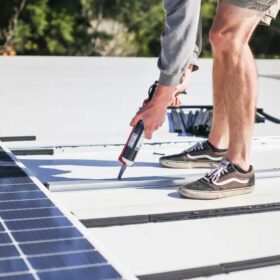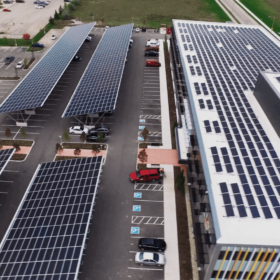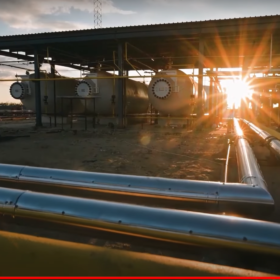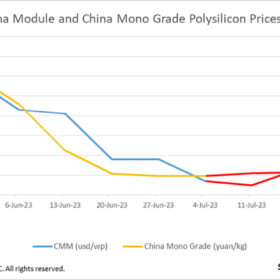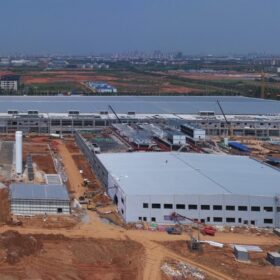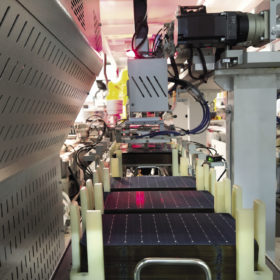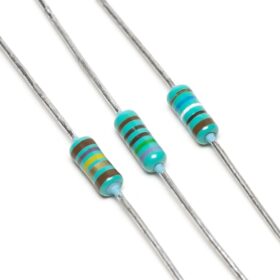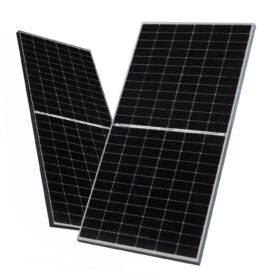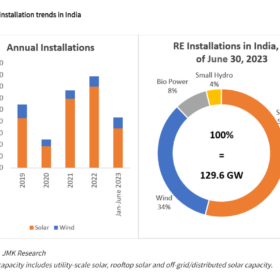Lightweight solar panel provides solution for rooftop installations
Australian installer UV Solar has rolled out a new frameless solar panel that manufacturer GoodWe says is 60% lighter than conventional PV modules, making it ideal for rooftops that are unable to support traditional PV and racking.
Heliene plans to manufacture 1 GW solar modules, 1.5 GW solar cells in the U.S.
Canadian-based Heliene plans a new factory in Minnesota that will begin producing modules in 2024 and cells in 2025.
India to emerge as global renewable energy powerhouse, says power minister
The nation is also set to emerge as one of the largest solar module manufacturers. It has considerable existing solar manufacturing capacity and is constructing even larger capacities, including polysilicon.
Brookfield, Reliance Industries sign MoU for solar panel, battery storage production in Australia
Brookfield and Reliance have signed a memorandum of understanding to explore the production of solar panels, long-duration battery storage, and other renewable energy equipment in Australia.
Module prices revert to descending trajectory after a brief rally
In a new weekly update for pv magazine, OPIS, a Dow Jones company, provides a quick look at the main price trends in the global PV industry.
GCL-Si opens 20 GW solar cell factory
GCL-Si says it has commissioned a new 20 GW solar cell factory that will supply n-type TOPCon cells to its module facilities in Hefei, Anhui province, and Funing, Jiangsu province.
Adani New Industries raises $394 million from Barclays, Deutsche Bank
Adani New Industries Ltd has raised a trade finance facility of $394 million from Barclays and Deutsche Bank, securing the working capital requirements of its integrated solar module fab.
Using shunts to spot PV module degradation
Scientists in Ireland investigated the effect of shunt resistance on a PV cell’s electrical performance. The group says its finding could potentially lead to the development of models for early detection of various forms of cell degradation, allowing for intervention to repair or replace components before major power losses occur.
TOPCon PV modules outperform PERC by more than 5% in energy yield tests
A study by TÜV Nord in Malaysia shows that the latest generation of tunnel oxide passivated contact (TOPCon) modules surpass their older rivals on energy yield. The researchers compared n-type TOPCon modules with older p-type PERC modules, both manufactured by JinkoSolar over a three-month period earlier this year. The newer product showed an energy yield 5.69% higher than its PERC counterpart.
India installed 6.8 GW of solar in H1 2023
Capacity addition in the rooftop solar segment stood at 2,294 MW, which is higher than the yearly rooftop PV installations of 2022.
